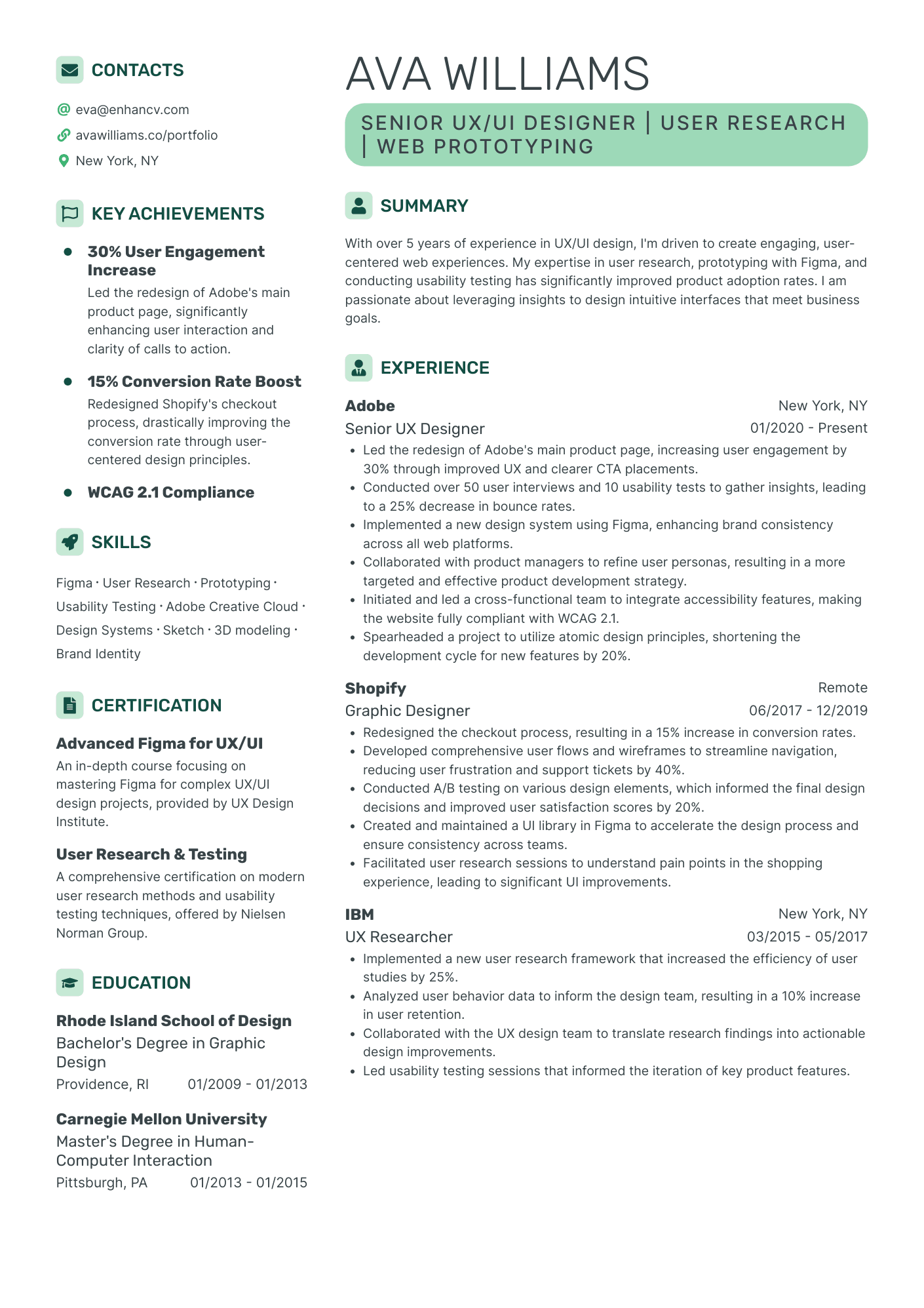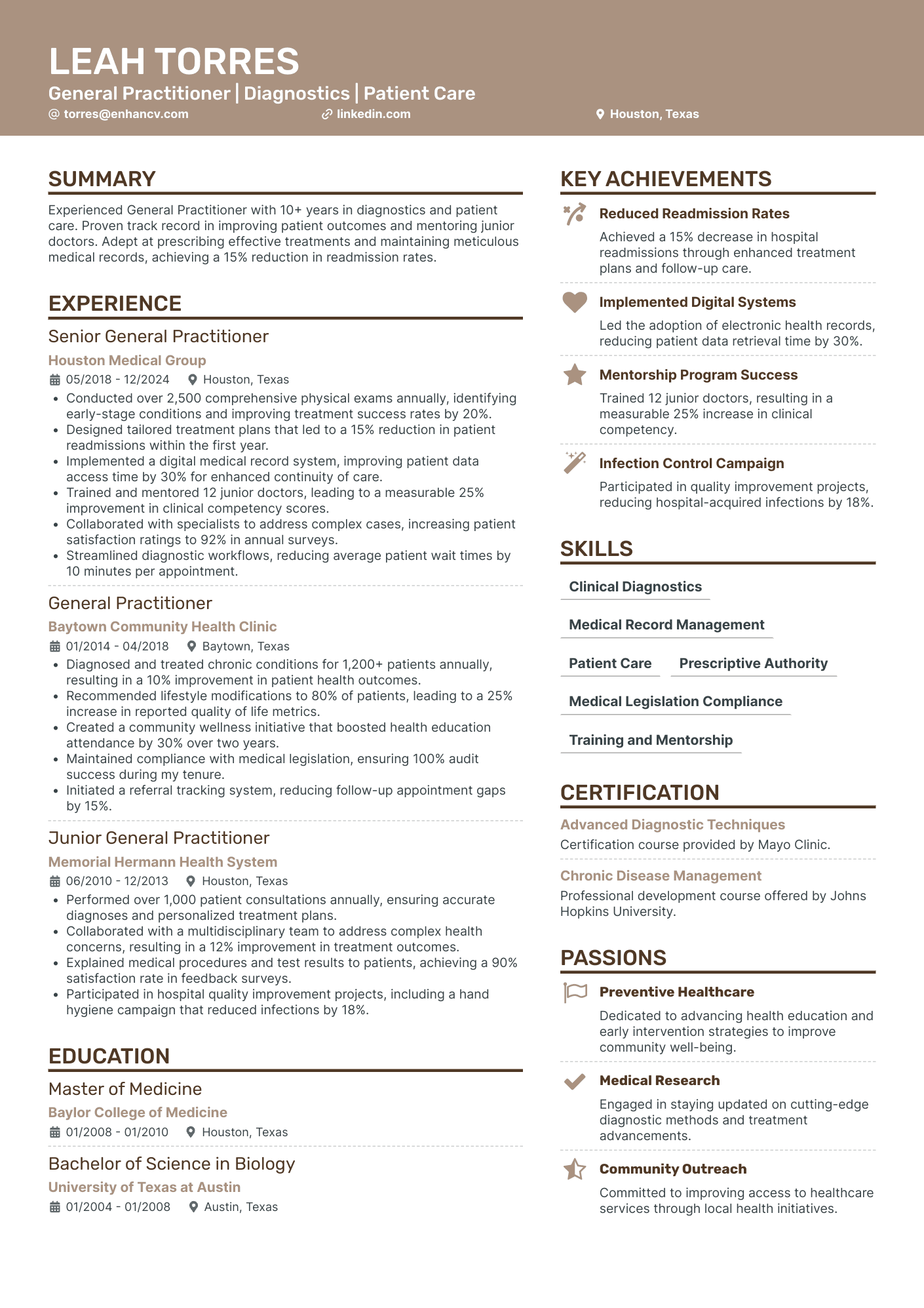You’ve polished your resume—great. But depending on the job, you might need more than just a well-formatted page of experience. Some employers expect supplemental information for your resume to get a clearer picture of your skills and impact.
Other times, these extras aren’t required but can help you set yourself apart in a crowded applicant pool. The key is understanding when they add value and how to present them strategically.
In this guide, we’ll break down the most common types of supplemental materials, when they help, and how to submit them without overwhelming a hiring manager.
Key takeaways
- There are ten common types of supplemental materials, including cover letters, portfolios, certifications, references, and security clearances—knowing when and how to use them can strengthen your application.
- Supplemental information can boost your application by providing proof of your competencies, but only if it’s relevant to the job.
- A portfolio showcases creative or technical work, while work samples highlight specific projects or reports for analytical roles.
- Certifications and licenses may be required for regulated industries like healthcare, finance, and law—always have them ready in the right format.
- Never overload a hiring manager with unnecessary files—follow job posting instructions and keep everything clear, accessible, and well-organized.
Before we dive in, test your current resume applicant tracking systems (ATS) score with our free AI resume checker.
Is your resume good enough?
Drop your resume here or choose a file. PDF & DOCX only. Max 2MB file size.
What is supplemental information for a resume?
Supplemental information means extra documents that support your resume, such as portfolios, work samples, certifications, or letters of recommendation. These materials provide evidence of your skills, experience, or qualifications—things a resume alone might not fully capture. Employers may request them for certain jobs, but even when optional, they can help strengthen your profile.
Don’t confuse this with additional information, which refers to the optional details listed directly on your resume—like volunteer work, language skills, or personal projects. Supplemental materials are separate files, while additional info fits into a dedicated section within the document.
Let’s explore the most common types of job application extras you may be asked for along with your resume.
Ten types of supplemental information to include with your resume
Your resume might get your foot in the door, but sometimes it’s the extras that seal the deal. The right supporting materials can highlight what a resume alone can’t—your expertise, your creativity, or the proof that you can walk the talk.
Below we explain the key add-ons, when to use them, and how they can give you an edge over other candidates
Cover letter
A cover letter is your chance to sell yourself beyond the bullet points of your resume. While your resume lists what you've done, your cover letter can bring your experience to life, showcase your character, and add context to your accomplishments.
It’s especially useful if you’re changing careers or have employment gaps. But remember—it shouldn’t be a copy-paste of your resume. Instead, it should reinforce your value by weaving in relevant stories, achievements, and even personal traits that make you a strong candidate.
Portfolio
A portfolio is your talent in action. For creative professionals like designers, writers, and photographers, it’s a must-have, but portfolios also hold weight in marketing, sales, tech, and other results-driven fields.
Where to add it? Put a link to your portfolio in your resume’s header or under relevant experience. Digital formats like personal websites, PDFs, or platforms like Behance, GitHub, Canva, or Dribbble make it easy for employers to review your work.
Here’s how a portfolio link looks on one of Enhancv’s resume templates.
Work samples
For roles that rely on analytical thinking or communication skills, work samples can be just as important as a portfolio. Consultants, project managers, analysts, content creators, and tech people are often asked to provide specific examples of their work—whether it’s a report, presentation, case study, or coding project.
Unlike a portfolio, which is a curated collection of projects, work samples are typically one-off examples tailored to what the employer wants to see.
How do you submit them? Do as requested, but it would be either as PDF attachments, links to cloud storage (Google Drive, Dropbox), or embedded within a personal website. Always ensure they’re well-formatted, recent, and relevant to the job.
Certifications and licenses
For some jobs, a certification isn’t just a nice bonus—it’s mandatory. Some of the industries requiring official certifications or licenses are:
- Healthcare (e.g., RN license, BLS certification)
- Finance (e.g., CPA, CFA)
- Law (e.g., State Bar License, USPTO)
- Transportation and aviation (e.g., FAA certification, CDL-commercial driving license)
- Teaching and education (e.g., State teaching certification)
Certifications prove you’ve met industry standards, while licenses are typically government-issued and legally required for certain professions.
These credentials are usually listed on your resume in a dedicated certifications section, like so:
However, hiring managers often request a digital or printed copy for verification. Make sure your documents are up to date, easy to access, and in the format the employer prefers—whether it’s a PDF, scanned image, or an official online credential.
More importantly, always feature relevant certifications, even if they are not mandatory, as they can boost your credibility.
References
References are professional contacts who can vouch for your skills, work ethic, and character, but they’re typically only required later in the hiring process. Employers may ask for a separate reference list, which should include names, job titles, and contact details of former managers, colleagues, or mentors who can speak to your qualifications.
References are not written statements—they’re live endorsements that hiring managers reach out to when they’re seriously considering your application. Always confirm with your references before listing them to ensure they’re ready to provide a strong recommendation.
Letters of recommendation
Letters of recommendation go a step further than references by providing a formal, written endorsement of your skills and character. These letters are often requested upfront and are particularly valuable in academia, government roles, highly regulated industries, and senior leadership positions.
Unlike references, which are contacted directly, a letter of recommendation is a pre-written document that highlights your strengths and reputation. Freelancers and consultants can also benefit from such testimonials, which help build credibility with potential clients or employers.
Transcripts
These are typically requested for entry-level jobs, internships, and academic roles, where employers want to verify your education. Certain industries—such as finance, research, and highly technical fields—may require transcripts to assess your relevant coursework and academic performance. Some employers accept unofficial transcripts, while others require official copies directly from your university.
Pay history
Pay history (or salary history) is a record of your past earnings, typically including previous job titles, salaries, bonuses, and benefits. While it used to be a standard part of job applications, many states now prohibit employers from asking for it to prevent wage discrimination.
Some private-sector employers, government agencies, and military organizations may still request pay history, especially in industries where compensation transparency is expected.
In states where it's legal, you can choose to disclose it, but it’s often better to pivot the conversation to salary expectations rather than past earnings. If required, provide a factual breakdown without limiting your negotiation power.
Publications or patents
If you’ve authored research papers, articles, books, or secured patents, including them in your application can highlight your expertise, credibility, and contributions to your field. This type of supplemental information is particularly valuable in industries where original thought, research, and innovation matter.
Publications and patents can be displayed in a dedicated section or linked separately if the list is extensive. A simple format includes:
- Title of publication/patent
- Co-authors (if applicable)
- Publication name or patent number
- Date of publication or approval
- Link (if available online)
As in this example from a journalist's resume:
Some employers or clients may request a full copy of your publication in certain situations, especially if they need to verify your work, assess your writing style, or evaluate your expertise on a specific subject. Since space on your resume is tight, put a link to a Google Scholar page, ORCID profile, or personal website with your full list of publications.
Security clearance
For government, defense, and high-security roles, your security clearance level (e.g., Secret, Top Secret, or Public Trust) can be a key qualification. If you already hold an active clearance, mention it upfront in the resume summary or experience section to help fast-track your application. Employers often prefer candidates who don’t need additional vetting.
Occasionally, organizations will request clearance levels separately. However, they’ll do it through secure channels, often after an interview. Don’t send clearance verification via email or attachments unless explicitly instructed by a verified government or contractor representative.
What NOT to include with your resume
Your resume should be concise, relevant, and strategic—but adding too much or the wrong kind of information can work against you. Before attaching any supplemental materials, keep these red flags in mind:
- Too much information: More isn’t always better. Employers don’t need to see every job you’ve ever had or a long list of unrelated certifications. Stick to what’s relevant to the role, and save extra details for the interview if needed.
- Old or outdated work: That college project from ten years ago? Probably not doing you any favors. Choose recent, high-quality examples that reflect your current skills and expertise—especially in fast-moving industries like tech, marketing, and design.
- Confidential client projects: If your past work is covered by NDAs or contains sensitive company data, do not share it. Instead, create generalized case studies or summarize achievements without revealing proprietary information.
- Classified details: Never attach official clearance documents or list specific classified projects on your resume. Instead, provide verification only through authorized channels upon request.
PRO TIP
If you're unsure whether to include something, ask yourself: "Does this directly strengthen my application?" If not, leave it out!
The best approach is to tailor both your resume and supplemental materials to the role you’re applying for. Keep only what strengthens your candidacy and cut anything that doesn’t directly support your case.
How to submit supplemental materials the right way
Even the most impressive portfolio or recommendation letter won’t help you if it’s buried in a messy file or sent when no one asked for it. Follow these submission best practices to make sure your supplemental materials actually work in your favor.
Check the job posting first
Before you start attaching files, make sure they’re wanted. If the job listing doesn’t ask for supplemental materials, only add them if they genuinely add value—for example, a portfolio for a design role or work samples for a writing job.
Make it easy to open and read
No one wants to download a dozen different file types or sift through a cluttered email. Stick to widely accepted formats like PDFs and easy-to-access links (Google Drive, Dropbox, or a personal website). Avoid sending Word documents unless specifically requested—PDFs preserve formatting and look more polished.
Label everything clearly
Hiring managers go through hundreds of applications, so make sure your files are easy to identify at a glance. Use clear, straightforward filenames like:
- MaryBarnard_Portfolio.pdf
- JohnSmith_Recommendation_Letter.pdf
- AlexMiller_ResearchSample.pdf
If you’re sending multiple documents, a single ZIP folder labeled with your name + job title can keep everything organized.
Use links the right way
If you’re submitting a portfolio, LinkedIn profile, or digital work samples, type the URL in your resume’s contact section or application email. Make sure:
- The link works and is publicly accessible (or has the correct permissions).
- The content is up-to-date and entirely professional.
- The URL is short and clean (use a URL shortener if needed).
- Good example: janedoeportfolio.com
- Bad example: https://drive.google.com/u/2/folders/0B3xH5F3G9aX9cTFoWlN4eXdfRmM?usp=sharing (complicated, not intuitive, may require access permissions)
Enhancv’s resume builder allows you to add two clickable links to your resume, making it easy for employers to access your work. Just remember—you’re responsible for shortening and naming your links properly so they look clean and business-friendly.
Follow employer instructions
Some companies have specific submission guidelines—such as requesting a Google Drive link instead of an attachment or preferring samples embedded in an email. Always follow their instructions exactly to show attention to detail.
Keep your email and upload professional
If you’re emailing your resume and supplemental materials, your message should be short and clear:
Subject: Application for [Job Title] – [Your Name]
Message: Dear [Hiring Manager’s Name],
Attached are my resume and relevant materials for the [Job Title] position at [Company Name]. Below is a link to my portfolio for your review. Please let me know if you need any additional information. Looking forward to your thoughts!
If applying through an online portal, check for any size limits (some systems reject large files) and review your attachments before submitting.
Conclusion
If in doubt, keep it simple! Submitting extra materials should make a hiring manager’s job easier, not harder. When done right, strategic supplemental materials can give you a competitive edge—without overwhelming your application.
Make one that's truly you.





